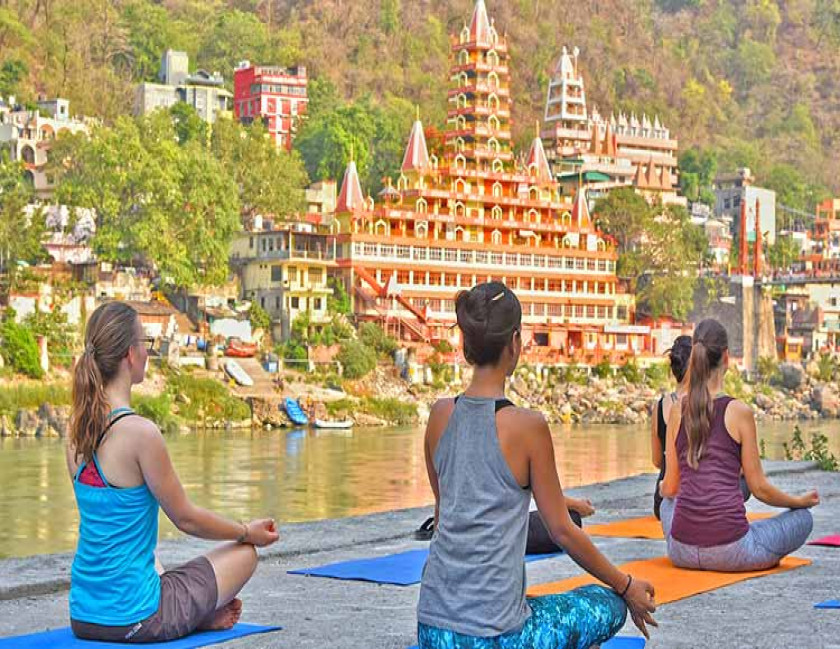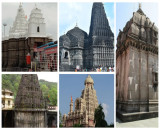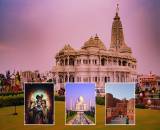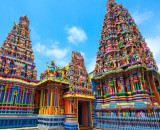08 Nights / 09 Days
Package price : ₹55,000/- Per Person

Yoga Originated from Ancient India as a group of mental, physical, and spiritual practices or disciplines. Centre for yoga practice and yoga study IS Rishikesh. Rishikesh city is known as the gateway to the Garhwal Himalayas and the Yoga Capital of the World, situated in Uttarakhand, India. Rishikesh, Uttarkashi and Haridwar are prominent locations for yoga practice. We at 'NTP India Tourism' offer best Yoga & Meditation tour packages for you at the best available price.
Day by Day Itinerary
Day 01: Arrive Delhi
Day 02: Delhi - Haridwar (by train) - Uttarkashi
Day 03: Uttarkashi
Day 04: Uttarkashi
Day 05: Uttarkashi - Rishikesh (150 kms)
Day 06: Rishikesh
Day 07: Rishikesh
Day 08: Rishikesh - Haridwar - Delhi (by train)
Day 09: Delhi Dept
Day 01: Arrive Delhi
On arrival at Delhi our representative will meet you at the airport and assist you till your check in process at the hotel. Stay overnight at the hotel.
Day 02: Delhi - Haridwar (by train) - Uttarkashi
Morning transfer to Railway station for Haridwar. Meet our representative on arrival at Haridwar Railway station and drive to Uttarkashi. On arrival check-in at hotel. In the evening, visit temple of Lord Vishwanath at Uttarkashi. Overnight stay at hotel.
Day 03: Uttarkashi
Morning Yoga session followed by Breakfast. Short Yoga discussion (optional). Lunch. In the evening, perform meditation & Yoga. Overnight stay at hotel.
Day 04: Uttarkashi
Morning Yoga session followed by Breakfast. Short Yoga discussion (optional). Lunch. In the evening, perform meditation & Yoga. Overnight stay at hotel.
Day 05: Uttarkashi - Rishikesh (150 kms)
In the morning after breakfast drive back to Rishikesh, on arrival check-in at Ashram. Overnight stay at Ashram.
Day 06: Rishikesh
Morning yoga session followed by breakfast. Later theory class. After lunch time for rest, then yoga meditation class. In the evening, see aarti being carried out on the banks of Ganga River. Overnight stay at Ashram.
Day 07: Rishikesh
Morning yoga session followed by breakfast. Later theory class. After lunch, time for rest, then yoga meditation class. Overnight stay at Ashram.
Day 08: Rishikesh - Haridwar - Delhi (by train)
Morning transfer to Haridwar Railway station for Delhi. Meet on arrival at Delhi Railway station and transfer to hotel. Overnight stay at hotel.
Day 09: Delhi Dept
In the morning stay in the hotel and relax. In late evening, head for the Delhi airport for onward destination.
Package Include
Package Exclude
circumstances as hike in fare, flight/train delay or canceled, strike or any other natural calamities (To be borne by the clients directly on the spot)
What is an Ashram Yoga & Meditation Tour in Rishikesh?
An Ashram Yoga & Meditation Tour in Rishikesh typically involves staying at a spiritual retreat center (ashram) where participants engage in daily yoga classes, meditation sessions, and other spiritual practices. The tour might also include excursions, spiritual talks, and opportunities to explore the sacred town of Rishikesh.
Who can join the tour?
The tour is open to all levels of practitioners—beginners to advanced—who are interested in yoga, meditation, and spiritual growth. Some programs may require a basic understanding of yoga or meditation, but there are also beginner-friendly options.
How long does the tour typically last?
The length of the tour can vary depending on the program. It can range from a weekend retreat (3-4 days) to week-long or even month-long stays, with some offering structured courses like a 200-hour Yoga Teacher Training (YTT) or silent meditation retreats.
What is included in the tour package?
Accommodation: Most tours include comfortable accommodations within the ashram, typically simple but serene and conducive to spiritual practices.
Meals: Vegetarian meals (often organic and sattvic—pure and nourishing) are provided.
Yoga Classes: Daily yoga sessions (Hatha, Vinyasa, or other styles) conducted by experienced instructors.
Meditation: Guided meditation sessions, which may include practices such as pranayama (breathing exercises), mindfulness, or other forms of meditation.
Workshops & Talks: Spiritual lectures, satsangs (spiritual gatherings), and discussions on Indian philosophy, Ayurveda, or other relevant topics.
Excursions: Visits to local spiritual sites such as temples, the Ganga river, or nature walks.
Do I need to have prior yoga experience?
No, prior yoga experience is not necessary for most tours, as many programs cater to beginners. However, more advanced courses (such as 200-hour Yoga Teacher Training) might require some foundational knowledge of yoga.
What kind of yoga is practiced in Rishikesh ashrams?
Hatha Yoga is the most common type practiced in Rishikesh ashrams, though other styles like Vinyasa, Kundalini, Kriya Yoga, and Ashtanga Yoga may also be taught. Meditation practices can include techniques like Vipassana, Transcendental Meditation, or Mantra Meditation.
What is the daily schedule like?
What should I pack for the tour?
Comfortable, loose-fitting clothes suitable for yoga and meditation.
Can I leave the ashram during the program?
Generally, ashrams prefer participants to remain within the retreat space for the duration of the program to fully immerse in the experience. However, there are often scheduled breaks for sightseeing or exploring the town. It’s best to confirm with the ashram if you plan to leave the premises for personal activities.
Are there any age restrictions?
Most ashrams do not have strict age restrictions, but some programs may be more suitable for adults (18+). If you are elderly or have health conditions, it’s important to communicate with the tour organizers to ensure the program is appropriate for you.
Is the food vegetarian?
Yes, ashrams in Rishikesh typically serve vegetarian meals, often organic and prepared according to Ayurvedic principles. Meals are designed to nourish the body and mind, with an emphasis on simplicity, freshness, and balance.
Do I need to know how to meditate?
No prior meditation experience is necessary for most programs. Ashrams in Rishikesh often provide beginner-friendly meditation sessions, which are guided by experienced instructors. The focus is on learning meditation techniques that can help calm the mind and deepen spiritual practice.
Is the tour safe for solo travelers?
Yes, Rishikesh is a popular destination for solo travelers, especially those interested in spirituality and wellness. The ashrams and local community are generally welcoming and supportive. However, it’s always advisable to stay aware of your surroundings and follow general safety guidelines.
Can I attend the tour if I have dietary restrictions?
Most ashrams are flexible with dietary needs and will accommodate vegetarian, vegan, gluten-free, or other dietary preferences. It’s best to inform the organizers in advance about any special dietary requirements or allergies.
How do I get to Rishikesh?
By Air: The nearest airport to Rishikesh is Jolly Grant Airport (DED), about 20 km away. From there, you can take a taxi or local transport to reach the ashram.
By Train: The nearest major railway station is Haridwar, which is around 25 km from Rishikesh. Trains from major cities like Delhi and Varanasi connect to Haridwar.
By Road: Rishikesh is well-connected by road from major cities in India. It’s about a 6-hour drive from Delhi, and there are bus services from neighboring cities.
What can I do in my free time in Rishikesh?
Explore the famous Lakshman Jhula and Ram Jhula suspension bridges.
Visit the sacred Parmarth Niketan Ashram or Triveni Ghat.
Take a boat ride on the Ganges River.
Explore the local market for spiritual souvenirs like rudraksha beads, incense, and handicrafts.
Attend the Ganga Aarti at Triveni Ghat or Parmarth Niketan.
Go on nature walks, hike to Neelkanth Mahadev Temple, or enjoy the peaceful environment of the foothills of the Himalayas.
What is the best time to visit Rishikesh for a yoga tour?
The best time to visit Rishikesh is from September to March, when the weather is cooler and more comfortable for outdoor activities. The peak tourist season is during the winter months (December-February), while the monsoon season (June-August) is less ideal due to heavy rains.
What is the significance of Rishikesh in yoga and spirituality?
Rishikesh is considered a sacred town where many great sages, saints, and yogis have practiced for centuries. It’s situated on the banks of the Ganges River and is believed to be a place of purification. The town is a spiritual hub for those seeking self-realization, healing, and a deeper connection to their inner self.
Booking your tour is simple and can be done online or offline. Just follow these steps:
Fill the Inquiry Form: Submit your details through our "Enquiry Now" form, or connect via WhatsApp chat or Live Chat or alternatively, you can email us your tour requirements.
Consult with Our Travel Expert: One of our travel experts will contact you, understand your requirements, and create the perfect package for you.
Confirm & Book: Once you are happy with the package, make an advance payment to confirm your booking.
Send us an email with the following details
Fill in the Booking Details: Provide the necessary information, including:
Make the Payment: To the company Bank account in the name of NTP Tourism Affairs Limited only
Child Policy
Cancellation Charges/ Refund Policy
Written Cancellation by email on the official email id info@ntpgroups.com or letter to the office address will be considered for the refunds and cancellation with the following cancellation (deduction) and refund policy.
Cancellation Policy
Refund Policy: All the refunds are settled in 30 days from the written cancellation received by our office
For More Booking, Cancellation & Refund Policies, please refer to the terms and conditions of NTP Tourism Affairs Limited.


6 Nights 7 Days tour
Lucknow, Naimisharanya, Prayagraj, Varanasi Ajodhya Package Tour
₹50,000/-
PER PERSON













03 Nights / 04 Days
Amarnath Yatra by Helicopter from Chennai, Bangalore, Delhi, Hyderabad, Kerala, Mumbai
₹35,000/-
PER PERSON










